Description
Eryngium planum is a Truly remarkable coarse, clump-forming perennial that features a summer bloom of steel-blue, thistle-like flower heads on branched stems rising from a rosette of dark green basal leaves. Attracts pollinators! Stiff, branched, violet-blue stems (to 32” tall), bearing abundant, egg-shaped, thistle-like, violet-blue flower heads, rise from each basal rosette in summer. Each flower head is a spherical-cylindrical umbel that is packed with tiny, stemless, violet-blue flowers. Summer bloom is often profuse.
Easily grown in dry, sandy, well-drained soils in full sun. Tolerates poor soils. Avoid overwatering. This is a taprooted plant that transplants poorly and is best left undisturbed once established.
Specific epithet means flat.Excellent selection for sun baked areas of the landscape. Beds and borders. Effective as a single specimen or in groupings. Excellent for cut or dried flower arrangements.
Used traditionally as a treatment for whooping cough, its antibacterial properties have interest as a natural preservative. Its high polyphenol content has driven research into anti inflammatory and antidiabetic qualities.
Herbaceous perennial, Family: Apiaceae, Zone: 5 to 8, Height: 1.50 to 2.50 feet, Spread: 1.00 to 1.50 feet, Bloom Time: June to August, Sun: Full sun, Water: Dry, Maintenance: Low, Good Cut, Good Dried
Great for winter sowing! Direct sow the seeds in autumn, or stratify in the fridge for three weeks if sowing in the spring. This involves planting into moist soil and enclosing the container in a plastic bag in the fridge. When the three weeks are up, move the bagged container into a warm room and await germination. Either way, this simulation of winter improves germination in Sea Holly seeds.
Sow seeds 2mm (1/8″) deep. Germination can take 5 to 90 days, so be patient. Perennial seeds are usually a bit erratic in germination compared to annuals.
approx 40 seeds

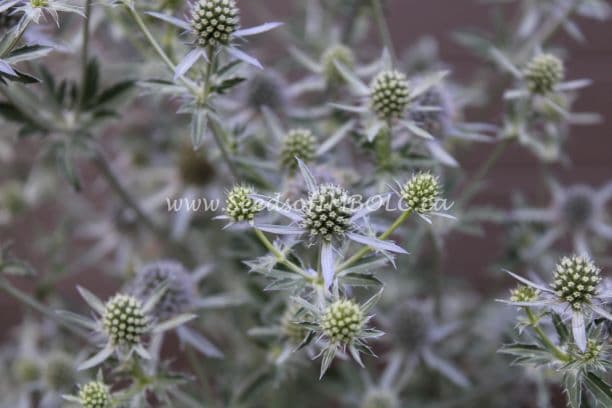
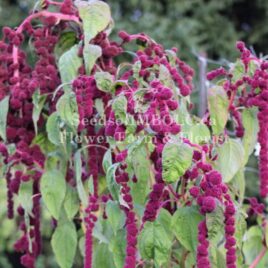
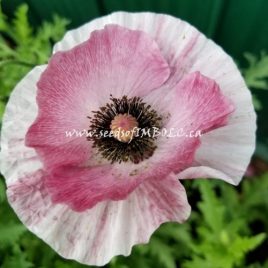
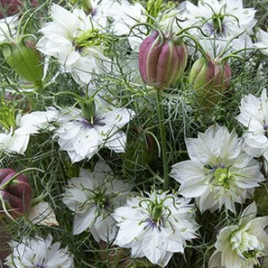
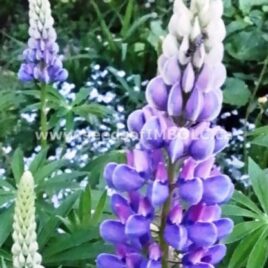
Reviews
There are no reviews yet.